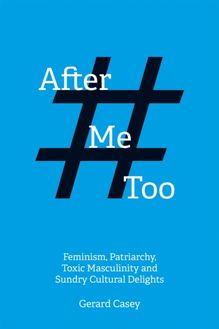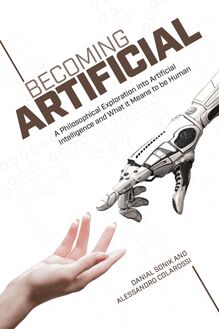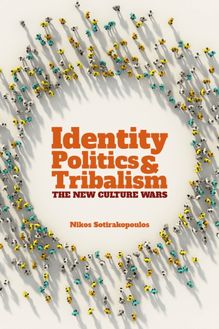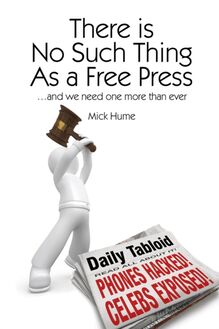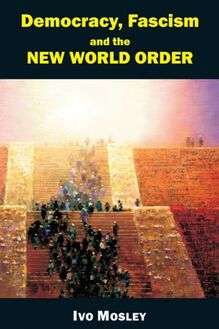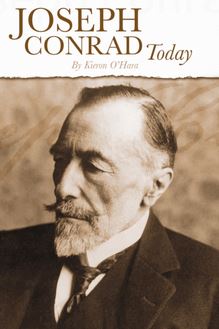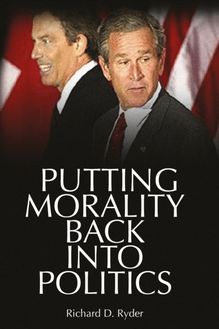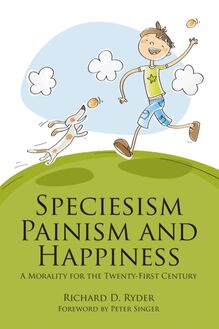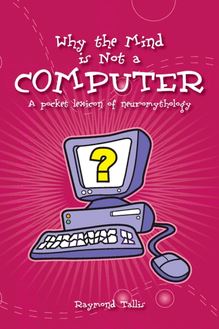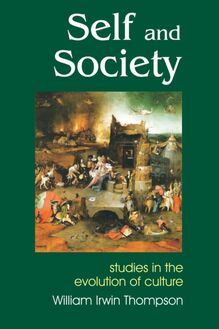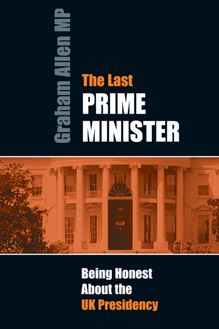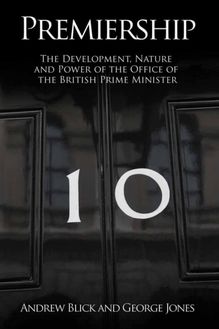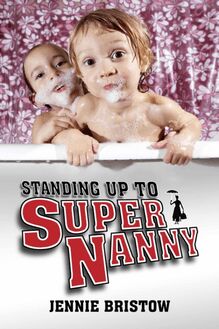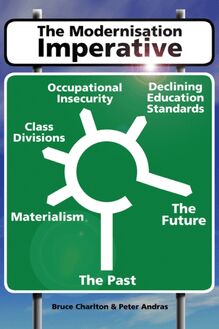-
 Univers
Univers
-
 Ebooks
Ebooks
-
 Livres audio
Livres audio
-
 Presse
Presse
-
 Podcasts
Podcasts
-
 BD
BD
-
 Documents
Documents
-
- Cours
- Révisions
- Ressources pédagogiques
- Sciences de l’éducation
- Manuels scolaires
- Langues
- Travaux de classe
- Annales de BEP
- Etudes supérieures
- Maternelle et primaire
- Fiches de lecture
- Orientation scolaire
- Méthodologie
- Corrigés de devoir
- Annales d’examens et concours
- Annales du bac
- Annales du brevet
- Rapports de stage
La lecture à portée de main
Vous pourrez modifier la taille du texte de cet ouvrage
Découvre YouScribe en t'inscrivant gratuitement
Je m'inscrisDécouvre YouScribe en t'inscrivant gratuitement
Je m'inscrisEn savoir plus
Vous pourrez modifier la taille du texte de cet ouvrage
En savoir plus

Description
Sujets
Informations
| Publié par | Andrews UK |
| Date de parution | 14 août 2018 |
| Nombre de lectures | 0 |
| EAN13 | 9781845406899 |
| Langue | English |
Informations légales : prix de location à la page 0,0324€. Cette information est donnée uniquement à titre indicatif conformément à la législation en vigueur.
Extrait
DEBATING HUMANISM
Dolan Cummings
imprint-academic.com
First published in 2006 by
Imprint Academic
www.imprint-academic.com
Digital edition converted and distributed by
Andrews UK Limited
www.andrewsuk.com
Copyright © Dolan Cummings & contributors, 2006, 2018
The right of Dolan Cummings & contributors to be identified as the authors of this work has been asserted in accordance with the Copyright, Designs and Patents Act 1998.
All rights reserved. No part of this publication may be reproduced, stored in a retrieval system, or transmitted, in any form or by any means without the prior written permission of the publisher, nor be otherwise circulated in any form of binding or cover other than that in which it is published and without a similar condition being imposed on the subsequent purchaser. Any person who does so may be liable to criminal prosecution and civil claims for damages.
The views and opinions expressed herein belong to the author and do not necessarily reflect those of Imprint Academic or Andrews UK Limited.
Contributors
Josie Appleton is a journalist and writer based in London. She is convenor of the Manifesto Club, writes for spiked (www.spiked-online.com), and has contributed to number of other publications, including The Times , Times Literary Supplement , and the Spectator . Her main research focus is looking at the estrangement from our humanity, and how this affects our views of and relationships with animals.
Bob Brecher is reader in philosophy in the School of Historical and Critical Studies, University of Brighton, and director designate of its Centre for Applied Philosophy, Politics and Ethics. He is a former president of the UK Association for Legal and Social Philosophy, and currently a representative of the UK Campaign for the Future of Higher Education. He has been a visiting research fellow in the Centre for Philosophy and Public Affairs at the University of St Andrews, and a visiting research and teaching fellow at the Department of Political Science at the Hebrew University of Jerusalem. His books include Getting What You Want? A Critique of Liberal Morality ; and Torture and ‘the Ticking Bomb’ will appear in 2007. He is also a consulting editor for Res Publica and a member of the editorial board of Philosophy of Management .
Simon Blackburn is professor of philosophy at Cambridge University and a fellow of Trinity College. As well as academic works, he has published a number of popular books on philosophy, including an introduction to philosophy, Think (1999), and an introduction to ethics, Being Good (2001). He also wrote Lust (2004), the Oxford Dictionary of Philosophy (1994), Truth : A Guide for the Perplexed (2005), and most recently Plato’s ‘Republic’: A Biography . He is a fellow of the British Academy, a frequent contributor to New Republic , and to discussion programmes on radio. He reviews for the Independent and The Sunday Times .
Andrew Copson is responsible for education and public affairs at the British Humanist Association, the national membership organisation for humanists and the non-religious. His work focuses on reform of religious education, the abolition of compulsory worship in schools, and the promotion of inclusive and accommodating community schools.
Dolan Cummings (editor) is the editorial and research director at the Institute of Ideas (IoI) and co-convenor of the annual Battle of Ideas festival. He also edits the IoI’s reviews website Culture Wars , for which he writes about theatre, film and books. He previously edited a collection of essays based on the IoI’s ‘Ideas, Intellectuals and the Public’ conference in 2003 as a special issue of the academic journal CRISPP (vol. 6, no. 4), which is also available as a book, The Changing Role of the Public Intellectual (2005).
Dylan Evans is the author of several popular science books, including Emotion: The Science of Sentiment (2001) and Placebo: The Belief Effect (2003). After receiving his PhD in philosophy from the London School of Economics, he did postdoctoral research in philosophy at King’s College London and in robotics at the University of Bath before moving the University of the West of England (UWE) where he was senior lecturer in intelligent autonomous systems. He left UWE in July 2006 to start the utopia experiment (see www.dylan.org.uk).
Anthony Freeman took degrees in chemistry and then theology at Oxford University. He was ordained in 1972 and held a variety of pastoral and teaching posts in the Church of England until being dismissed by his bishop for publishing a naturalist account of Christianity, God In Us: A Case for Christian Humanism (SCM Press, 1993; 2nd edition Imprint Academic, 2001). He remains a priest and preaches regularly as well as lecturing and writing on theological and consciousness matters. He has been managing editor of the Journal of Consciousness Studies since its launch in 1994. His other published works include Gospel Treasure (SPCK, 1999) and Consciousness: A Guide to the Debates (ABC-Clio, 2003).
Frank Furedi is professor of sociology at University of Kent, and author of a number of books including Politics of Fear , Where Have All the Intellectuals Gone? , Therapy Culture , Paranoid Parenting and Culture of Fear . During the past decade his intellectual work has been devoted to clarifying the meaning of humanism for the twenty-first century. In Politics of Fear he argues that the politics of fear thrives in an atmosphere where the exercise of human agency is regarded with suspicion if not dread - and that the alternative to this culture of misanthropy is to set about humanising our existence.
AC Grayling is professor of philosophy at Birkbeck College, University of London, and a supernumerary fellow of St Anne’s College. He has written and edited many books on philosophy, including most recently Among the Dead Cities and The Form of Things: Essays on Life, Ideas and Liberty . He is a regular reviewer and writer for several publications, and a frequent broadcaster on radio. He is the editor of Online Review London , and contributing editor of Prospect magazine. In addition he sits on the editorial boards of several academic journals, and for nearly ten years was the honorary secretary of the principal British philosophical association, the Aristotelian Society. He is a past chairman of June Fourth, a human rights group concerned with China, and has been involved in UN human rights initiatives. He is a fellow of the World Economic Forum, and a member of its C-100 group on relations between the West and the Islamic world.
Dennis Hayes is joint president of the University and College Union, the largest further and higher education union in the world. He is the head of the Centre for Professional Learning at Canterbury Christ Church University and the author of several books, most recently The Dangerous Rise of Therapeutic Education: how teaching is becoming therapy (with Kathryn Ecclestone). He also writes a regular column for FE Focus in the Times Educational Supplement .
Elisabeth Lasch-Quinn is an American cultural historian and professor of history at Syracuse University in New York. She is author of Race Experts: How Racial Etiquette, Sensitivity Training and New Age Therapy Hijacked the Civil Rights Revolution , in which she traces the evolution of racial discourse in the US from the civil rights movement of the 1960s to today. She is winner of the Berkshire Conference of Women Historians Book Award, and has also written numerous articles and reviews in publications such as the New Republic , Washington Times , Encyclopedia of American Cultural and Intellectual History and the Journal of Social History .
Kenan Malik is a writer, lecturer and broadcaster. His main academic interests are in the history of ideas, the history and philosophy of science, race and ethnicity, and theories of human nature. His books include The Meaning of Race: Race, History and Culture in Western Society (1996) and Man, Beast and Zombie: What Science Can and Cannot Tell us about Human Nature (2000) . A new book Why Do We Still Believe in Race? is due to be published next year. He has written and presented a number of TV documentaries including Disunited Kingdom, Are Muslims Hated?, Let ‘Em All In and Britain’s Tribal Tensions . He is also a writer and presenter of Radio 4’s Analysis programme. An archive of his work can be found at www.kenanmalik.com.
Daphne Patai is professor of Brazilian literature at the University of Massachusetts, Amherst. She is the author and editor of many books, most recently Theory’s Empire: An Anthology of Dissent (2005), co-edited with Will H Corral. A former professor of women’s studies, Patai has become a critic of the field. She co-authored (with Noretta Koertge) Professing Feminism: Education and Indoctrination in Women’s Studies (new enlarged edition, 2003), and in 1998 published Heterophobia: Sexual Harassment and the Future of Feminism. Long concerned about the attack on free speech on American campuses, Patai has been involved with FIRE, the Foundation for Individual Rights in Education, since its inception and currently serves on its board of directors. She is currently at work on a volume of essays entitled ‘What Price Utopia?’ and Other Essays by a Recovering Feminist.
Introduction: Debating Humanism
Dolan Cummings
What is a man,
If his chief good and market of his time
Be but to sleep and feed? A beast; no more.
More than to sleep and feed, to be human is to debate, to argue, to think out loud and to engage with the ideas and opinions of others. Over time we have developed countless languages, rituals and technologies to help us do this. And a recurring theme of debate is the very question of what it means to be human,
-
 Univers
Univers
-
 Ebooks
Ebooks
-
 Livres audio
Livres audio
-
 Presse
Presse
-
 Podcasts
Podcasts
-
 BD
BD
-
 Documents
Documents
-
Jeunesse
-
Littérature
-
Ressources professionnelles
-
Santé et bien-être
-
Savoirs
-
Education
-
Loisirs et hobbies
-
Art, musique et cinéma
-
Actualité et débat de société
-
Jeunesse
-
Littérature
-
Ressources professionnelles
-
Santé et bien-être
-
Savoirs
-
Education
-
Loisirs et hobbies
-
Art, musique et cinéma
-
Actualité et débat de société
-
Actualités
-
Lifestyle
-
Presse jeunesse
-
Presse professionnelle
-
Pratique
-
Presse sportive
-
Presse internationale
-
Culture & Médias
-
Action et Aventures
-
Science-fiction et Fantasy
-
Société
-
Jeunesse
-
Littérature
-
Ressources professionnelles
-
Santé et bien-être
-
Savoirs
-
Education
-
Loisirs et hobbies
-
Art, musique et cinéma
-
Actualité et débat de société
- Cours
- Révisions
- Ressources pédagogiques
- Sciences de l’éducation
- Manuels scolaires
- Langues
- Travaux de classe
- Annales de BEP
- Etudes supérieures
- Maternelle et primaire
- Fiches de lecture
- Orientation scolaire
- Méthodologie
- Corrigés de devoir
- Annales d’examens et concours
- Annales du bac
- Annales du brevet
- Rapports de stage
